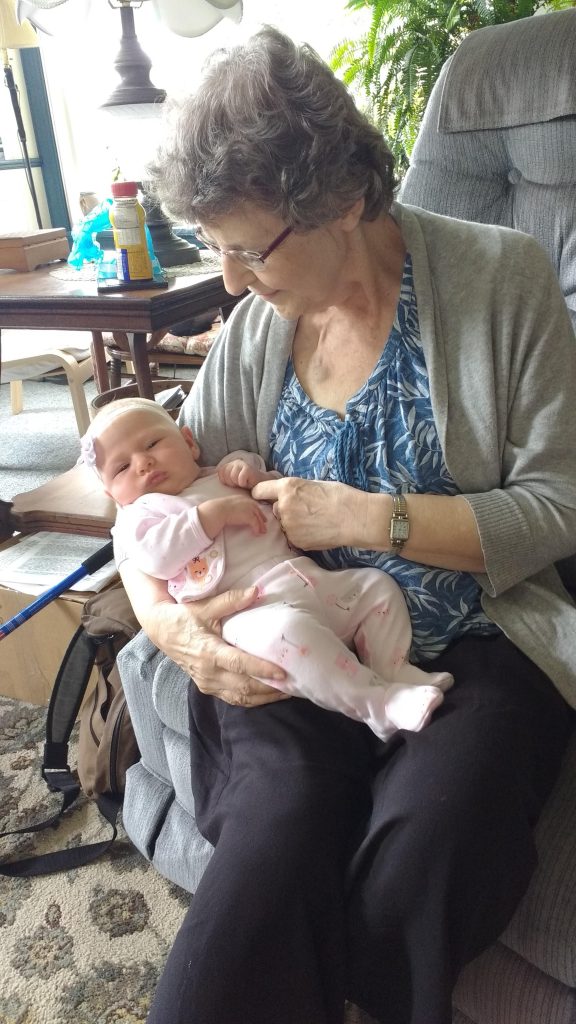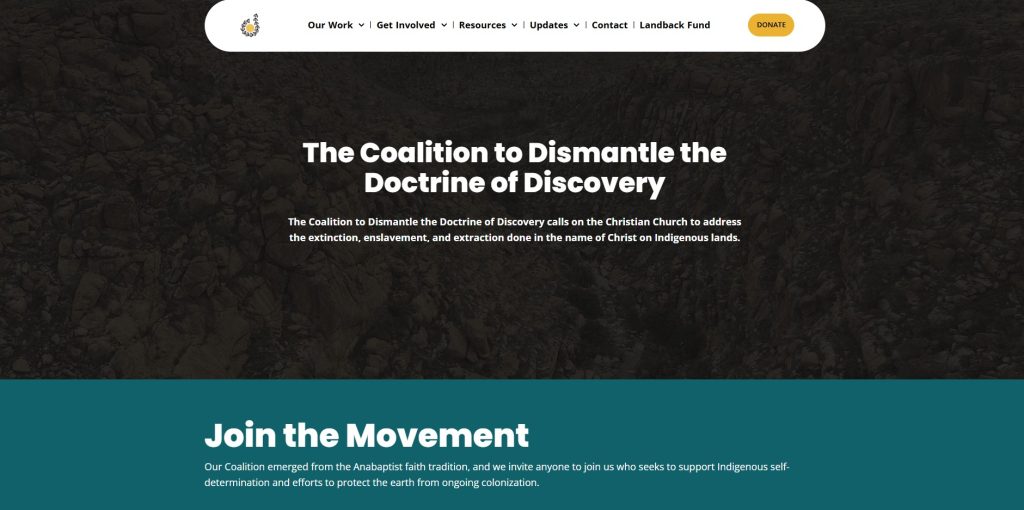On Thanksgiving this year Anabaptist Perspectives published an interview with historian John Ruth exploring the historical backdrop of the land that many Anabaptists settled in Pennsylvania. How did this affect the indigenous population that lived in this region? How were Mennonites culpable in the appropriation of native lands?
In 2021, John L Ruth wrote a book titled This Very Ground, This Crooked Affair: A Mennonite Homestead on Lenape Land on the topic. If you want to learn more specifically about the Lenape land that became Mennonite land in Pennsylvania this would be a good starting point.
Another 2021 book to read on the topic is The Land Is Not Empty: Following Jesus in Dismantling the Doctrine of Discovery by Sarah Augustine, a Pueblo (Tewa) Mennonite.
I’m a convert to the Mennonite faith and I don’t have family land that I can trace back to William Penn, but this sharing is still relevant to me. One branch of my family is Pennsylvania Dutch. I’m related to the Potts of Pottstown and the Pennypackers. I can trace some of my ancestors back to early settlers in New Jersey.

Before moving to Cambodia, we lived and worked in what is sometimes called the Lenape Valley. I’ve been to John Ruth’s family home – to visit his daughter Dawn who attended Plains Mennonite with us in Pennsylvania – and we often drove along the Indian Creek. These are places that are real and have a personal history to us as well.
How can we live with remorse?
In 2001, the Christian Ska band Five Iron Frenzy released a song called The Day We Killed which I think is one of the most prophetic songs that I’ve heard from contemporary Christian music. The charge at the heart of the song is that “the way we live shows no remorse for the day we killed crazy horse” and then brings that charge forward to reference exploitative practices today.
Warning: Five Iron Frenzy is quite a tone shift from John Ruth.
This song has always made me ask myself what does living a life that shows remorse look like? I think that living with remorse humbles and tempers us. It makes us wary of repeating patterns that caused harm in the past and eager to join in healing past harm when we can. As an individual living generations later it’s easy to feel hopeless but I don’t think living with remorse is the same as being consumed by guilt. The historical record can feel overwhelming, especially when compared to our capacities as individuals, so…
What can we do?
In 2014, the Coalition to Dismantle the Doctrine of Discovery emerged from the Mennonite Church in North America. This Coalition calls on the Christian Church to address the extinction, enslavement, and extraction done in the name of Christ on Indigenous lands. The Coalition’s mission is that harm done in the name of Christ must be undone in the name of Christ.

Mennonite Central Committee has a variety of Indigenous Neighbor initiatives. These acknowledge that the history between Mennonites and Indigenous peoples includes deep injustices. As we grapple with this history, MCC seeks to walk in friendship and solidarity with Indigenous peoples globally. We partner with Indigenous peoples in places such as Canada, the U.S., Bolivia and India.

One Comment Add yours